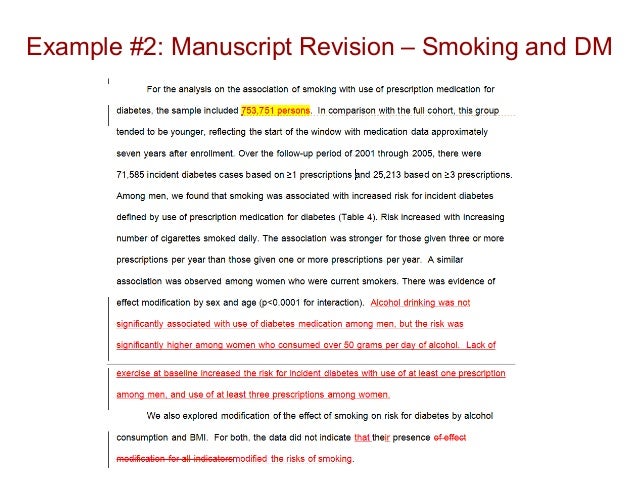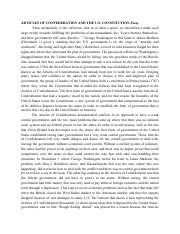formed on reviewers’ positive comments for 28 manu-scripts recommended unanimously for acceptance. Results. On average, four peers (, SD = , range = 2–6) reviewed each manuscript. Of those recom-mended for exclusion, a mean of reviewers recom-mended exclusion and each reviewer wrote a mean of (SD = ) reasons 7/1/ · Avoid writing vague comments. Tell the authors exactly what you are talking about. Remember, you are the one who must re-review the manuscript should a revision be submitted, so this exactness will benefit you if and when you are called upon to evaluate the revised manuscript. Be specific in your comments Reviewer Comments to Author(s): Reviewer #1 (Jillon Vander Wal, PhD): Overall, this is a clear, concise, and well-written manuscript. The introduction is relevant and theory based. Sufficient information about the previous study findings is presented for readers to
Giving an effective peer review: sample framework and comments
The system of peer-reviewed journals requires that academics review papers written by other academics, manuscript review comments examples, that is, papers written by their peers. We have previously discussed peer review generally Why do the rules and conventions of academic publishing keep changing and how can researchers stay current?
and how authors can effectively respond to peer review Writing effective response letters to reviewers: Tips and a template. This article will cover the other side: being manuscript review comments examples reviewer. Here, we'll look at manuscript review comments examples basic tenets of peer review, and we've provided a sample framework to help new reviewers give comments that will help authors strengthen their papers. Peer reviews are intended to be impartial unbiasedand so anyone asked to be a reviewer should consider, before accepting, manuscript review comments examples, whether they have any COIs.
Anything that could make you, as a reviewer, consider the paper more or less favorably because of your relationship with the author is a COI.
You should decline to review, or at minimum disclose to the journal editor, papers written by a past co-authors of yours, b members of your department, c your students or mentors, d personal friends, and e professional rivals.
You should also decline if you will gain any potential financial or personal benefits from publication of the work. If you are unsure about whether a conflict of interest exists, check the journal's guidelines or with the journal editor. As examples of COI policies, Elsevier has a general factsheet on COIs and the International Committee of Medical Journal Editors provides information about peer reviewer responsibilities.
The reviewer acts as an advisor to the journal editor. Because of this, the review should be more than a simple "accept" or "reject". When writing a review, you should describe the reasons for the recommendation so that the editor can make an informed decision, manuscript review comments examples.
It is far more important to comment on the academic content of a paper than on grammar and punctuation. However, if the language is too poor to understand the contents adequately, then alert the journal editor. See below for a sample framework that manuscript review comments examples assist you in ensuring that you've covered the most important points in your review. The review will be sent to the author of the paper. Because of this, reviewers are in a strong position to advise the author on how the paper could be strengthened.
Whether you are recommending acceptance or rejection, the author could benefit from your feedback and advice. One particular caution is manuscript review comments examples you want to suggest the authors cite your own papers—do this sparingly.
The review should be intended to help the author, not the reviewer. Finally, reviews should be respectful in tone. Unfortunately, we've all seen derogatory and unhelpful reviewer comments at times, which do not help the author. Peer review should be collegial and respectful. Reviewers receive submitted papers with the understanding that they are handling confidential communications. As such, they should not discuss the review or disclose any of its content to third manuscript review comments examples. Reviewers also should not use their knowledge of the work they are reviewing to further their own personal interests.
Reviewers who are not able to provide a proper review, due to lack of time or lack of expertise in the area covered by the paper, should decline the review. Get featured articles and other author resources sent to you in English, Japanese, or both languages via our monthly newsletter.
Many journals provide reviewers with a form to fill out during review, but the framework below can be used in other cases. We hope you've found these tips useful.
We currently offer support for new and experienced reviewers in a number of ways, including by translating their comments to English and by editing their English comments to ensure that the authors receiving the review have high-quality, well-worded comments that help them strengthen their manuscripts.
Also, if you have any questions about writing effective reviewer comments, please do let us know. We're happy to support you in this important academic task. Our monthly newsletter offers valuable tips on writing and presenting your research most effectively, as well as advice on avoiding or resolving common problems that authors face. Ask questions and receive the answers in English or Japanese. Giving an effective peer review: sample framework and comments.
Chad Musick, manuscript review comments examples, PhD, and Caryn Jones Writing. Basic tenets of peer reviewing:. There are 5 basic tenets that should be kept in mind: Decline the review if you have any conflicts of interest COIs, manuscript review comments examples. Remember that you're advising the journal editor, manuscript review comments examples making the decision about whether to accept or reject, manuscript review comments examples.
Try to be helpful and always respectful to the author. Maintain confidentiality of the paper contents. Decline the review if you are too busy, or not familiar enough with the topic, to complete a proper review. Sign Up. We will never spam you or sell your information and you can unsubscribe any time Click to view privacy policy. Sample Framework for Your Reviewer Comments. Describe the basic contribution of the paper.
This should be a few sentences on the topic of the paper. Beginning with this helps the journal editor and lets the author manuscript review comments examples that you've understood the paper. Give your recommendation. You can use one of the following sentences.
Give your reasons for your recommendation. Label these as "major comments". A few examples are given to the right. Finally, give some additional comments about the paper. Label these as "minor comments". A few examples are to the right. In some of the figures, the legends are too small to be legible. Can you comment on this disparity? Download the PDF version of this article, manuscript review comments examples.
Stay up to date Our monthly newsletter offers valuable tips on writing and presenting your research most effectively, as well as advice on avoiding or resolving common problems that authors face. Sign up now. Do you have a question about academic writing or publishing? Ask a specialist editor now.
How to Respond to Reviewer Comments: A Good and Bad Example
, time: 10:22
Sample Peer-Review of a Fictitious Manuscript Reviewer A’s Comments to Authors: This is a prospective study that analyzed the factors associated with cancer progression after EMR of Barrett’s esophagus with high-grade dysplasia. Eighty patients underwent EMR and were followed every 3 months for 1 year, and every 6 months thereafter for 3 years Reviewer Comments to Author(s): Reviewer #1 (Jillon Vander Wal, PhD): Overall, this is a clear, concise, and well-written manuscript. The introduction is relevant and theory based. Sufficient information about the previous study findings is presented for readers to Finally, give some additional comments about the paper. This is where you can note problems with spelling and/or grammar, suggest changes to figures and tables, and make other specific comments. Label these as "minor comments". A few examples are to the right

No comments:
Post a Comment